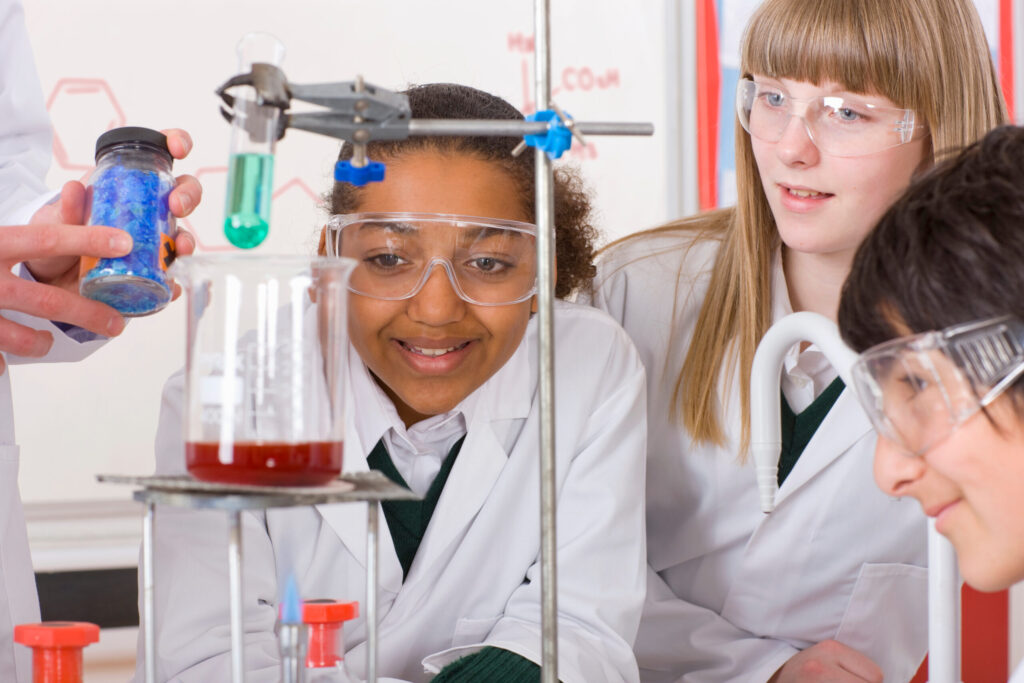For some people (and, I’ll admit, I’m one of them) students doing practical work in science is an article of faith. I think we’d have lost something very valuable if students studied science at school and didn’t get their hands on some equipment to use. It’s part of the learning process.
However, I also believe that we have to examine how we teach (or rather, how students learn) and be guided by the evidence about what works. Practical work shouldn’t be defended on the basis of tradition or sentimentality but on evidence of impact on learning. Robin Millar, in his excellent book “Analysing Practical Science Activities” (ASE) uses research evidence to suggest that practical work can have a positive impact upon students’ command of enquiry skills as long as there is a tight focus upon a particular skill in a particular lesson. If this happens, there’s likely to be a real impact upon outcomes. In other words, if you want students to get better at, say, interpreting graphs then make that the real focus of the lesson. They might be using practical work to generate data to produce the graphs but keep a clear focus on the key outcome.
 What would happen in GCSE science lessons if there was no internal assessment?
What would happen in GCSE science lessons if there was no internal assessment?
Would we breathe a sigh of relief and quietly reduce the number of practical activities, justifying it on the basis of focusing on what would enable students to get better grades?
Or would we regard practical work as being a good way of securing engagement and developing understanding, maybe even expanding its role once the Controlled Assessments had gone? Maybe the matter would be taken out of our hands as cash-strapped Heads closed Prep Rooms and redeployed Lab Technicians.
Let’s explore another idea though. What would happen if internal assessment went but the skills of scientific enquiry were assessed in the external assessment? Let’s say, for example, that there was a question in a final exam paper, in which students had to study a set of data from an experiment and decide what conclusion could be safely drawn from that data. Would that question encourage teachers to do more practical work (so that students could develop the skill of constructing explanations from data) or less practical work (to release time for students to practise that type of question)?
Here’s another thought. If such a question was set in a Controlled Assessment, using the kind of data generated by a candidate, wouldn’t that mean that the question was limited to small scale lab work? If the question was in an external exam, couldn’t it then be set in a much wider range of contexts?
Now, I think the future of Controlled Assessments could go either way with the next round of GCSEs. The DfE isn’t keen on them but acknowledges that different subjects need to be assessed in different ways. The place of scientific enquiry is more secure; it’s there, loud and proud, in the revised draft programme of study for science for KS4.
I’ll be honest; if we lose Controlled Assessments and then end up, for whatever reason, with less practical work, it’ll be a retrograde step and I believe outcomes in the broader sense will suffer. However, dropping Controlled Assessments could mean scientific enquiry being seen, and assessed, in a broader context and, actually, more practical work being done. I like the idea that Controlled Assessments secure the place of practical work but I worry that the place secured is a rather limited one.
Do you think Controlled Assessments should stay or go? Tell us in the comments or tweet us @FreedomToTeach!
Ed Walsh
Ed Walsh is Science adviser for Cornwall Learning. In the past, he has worked extensively with teachers, schools, local authorities and national agencies in relation to science education



